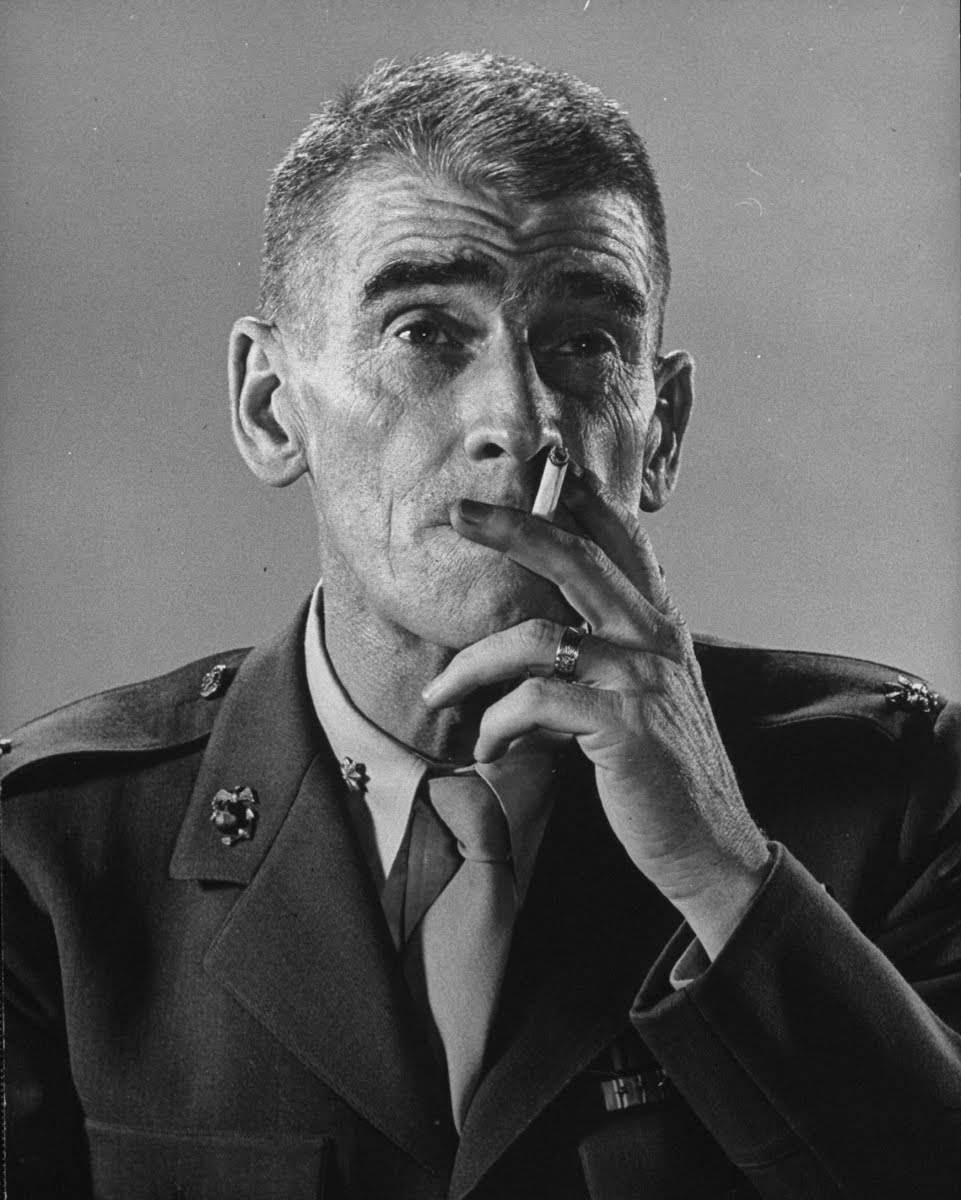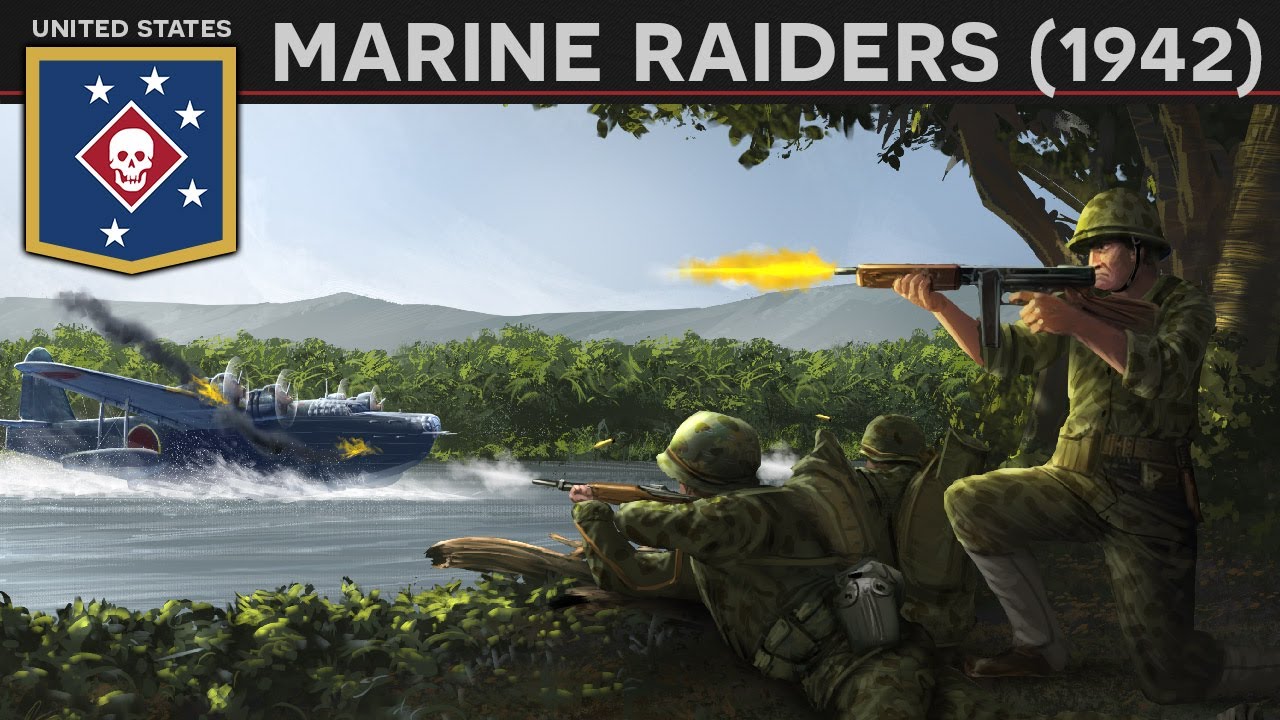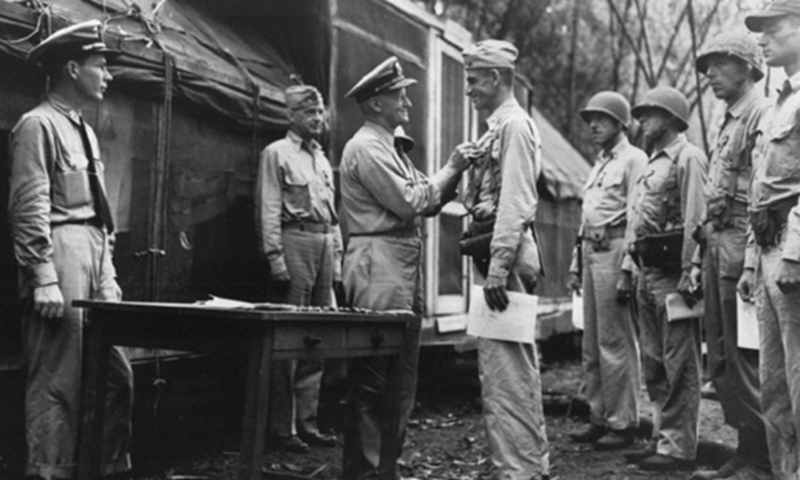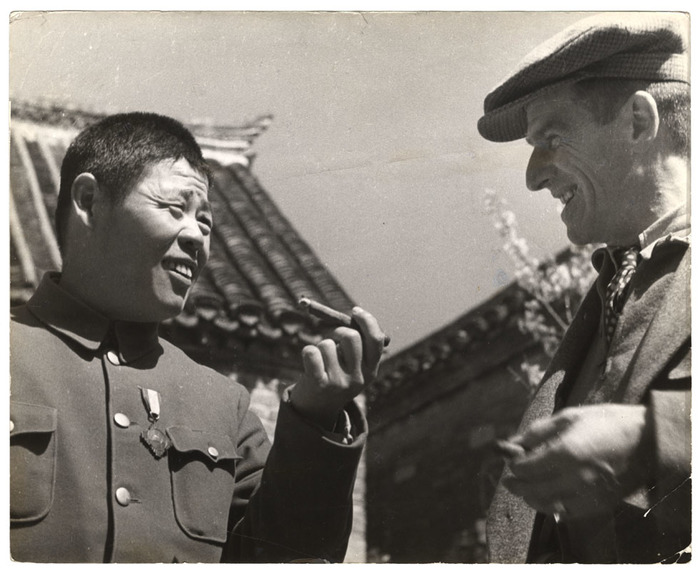Evans Carlson About Warfare And Unconventional Tactics
Evans Carlson, a distinguished military figure, is renowned for his groundbreaking ideas about warfare and unconventional tactics. The ideas of Evans Carlson about warfare and unconventional tactics, formed during his time with the Chinese Red Army, greatly influenced the formation of Carlson's Raiders during World War II.
Author:Jane RestureAug 03, 202322.5K Shares835.4K Views

Evans Carlson, a distinguished military figure, is renowned for his groundbreaking ideas about warfare and unconventional tactics. The ideas of EvansCarlson aboutwarfare and unconventional tactics, formed during his time with the Chinese Red Army, greatly influenced the formation of Carlson's Raiders during World War II.
His remarkable career spanned experiences in Nicaragua, where he honed his skills in guerrilla warfare, to serving as an observer with the Chinese Red Army during the Sino-Japanese conflict. These encounters profoundly influenced his understanding of military strategy and political dynamics.
Carlson's passion for advocating on behalf of China led him to resign from the Marines, after which he formed the renowned "Carlson's Raiders" during World War II. Let's look into the life and accomplishments of Evans Carlson, exploring the events that shaped his ideologies and the legacy he left on military tactics and training.
Early Career And Experiences In Nicaragua
Evans Carlson's military journey began during World War I when he served as a Captain in the army. However, his defining experiences came later when he enlisted in the Marine Corps as a Private in 1922. Stationed in Nicaragua during the Sandino regime, Carlson had multiple encounters with the native "bandits," and these encounters shaped his understanding of guerrilla warfare.
During his time in Nicaragua, Carlson observed the tactics used by the native bandits, which primarily involved traveling at night and ambushing during the day. However, he adapted and improved upon their methods by reversing the strategy. Carlson led a detachment of fifteen marines on horseback, and during one notable incident, he routed a group of one hundred Nicaraguans and chased them over the border into Honduras. His exemplary leadership and strategic brilliance earned him the prestigious Navy Cross.
Influence Of The Chinese Red Army
In 1937, Carlson arrived in Shanghai to serve as an observer with the Chinese army during the Sino-Japanese conflict. During his time in China, he became intrigued by the 8th Route Army, also known as the Red Army, which was engaging in large-scale guerrilla warfare against the Japanese invaders. He found similarities between their tactics and those he had observed in Nicaragua.
Impressed by the mobile and self-sustained nature of the Red Army, Carlson spent two years studying their operations and organization. He admired their unselfish leaders who prioritized the welfare of their soldiers. Moreover, the Red Army's emphasis on political education and mobilization of the local population intrigued Carlson. He observed how they organized the people in the area of their operation, teaching them how to hold elections, establish schools, and form guerrilla bands. This created an environment where the enemy was faced with a hostile population that actively resisted occupation.
Carlson's Advocacy For China And Resignation From The Marines
Upon completing his observation tour in China, Carlson publicly expressed his support for the Red Army and Chinese co-operatives, believing that they represented the best hopes for China's future. He criticized the U.S. for indirectly supporting Japan's aggression by providing scrap, oil, and other materials. This outspoken stance led to official censorship, causing Carlson to resign his Marine Corps commission in May 1939 after seventeen years of service.
Undeterred, Carlson continued his efforts to support China's cause by joining Henry Stimson's committee for an embargo against Japan. He also authored two books, "Twin Stars of China" and "The Chinese Army," further advocating for China's interests. Carlson's dedication and insight into global affairs showcased his profound understanding of political and military dynamics.
Formation Of Carlson's Raiders
In 1940-41, while serving as a civilian, Carlson visited China once again to inspect the co-operatives. Convinced that Japan would attack the U.S., he returned to Washington to share his observations. He was subsequently commissioned as Lieutenant Colonel and assigned to the Second Marines as Operations Officer.
At this point, Carlson saw an opportunity to put his ideas into practice. He envisioned a specialized force trained for long, swift marches, equipped with radio communication and a high percentage of automatic weapons. He believed in the importance of ideological training and understanding the political significance of the war. This led to the formation of Carlson's Raiders, a select group of highly trained soldiers ready to undertake unconventional missions.
Evan Carlson About The Unique Approach Of Carlson's Raiders

Units of History - Marine Raiders (1942): Birth of the USMC Spec Ops DOCUMENTARY
Carlson's Raiders were not your typical military unit. Carlson abolished traditional officers' privileges, making them experience the same living conditions and discomfort as the enlisted men. The unit was structured differently from standard Marine Corps units, with basic groups of three called "fire groups."
Each fire group was equipped with atomic guns, Garand rifles, and browning automatic rifles (B. A. R.). This approach aimed to create a highly mobile and flexible force that could carry out swift and effective operations.
The training of Carlson's Raiders was intense and thorough. They were marched for long distances with full packs, becoming skilled in hand-to-hand combat with knives and bayonets. They excelled in swimming, climbing, and infighting. Most importantly, they were trained to kill silently and efficiently. Their preparation was not merely focused on physical fitness but also on understanding the political significance of the war they were fighting.
Guadalcanal Campaign And Successes
Carlson's Raiders proved their mettle during the Guadalcanal campaign in the Solomon Islands. After the successful Makin raid, the Raiders received orders to move into Guadalcanal and spearhead an army landing. They landed on November 4th, 1942, and immediately received instructions to move inland through the Japanese lines towards Henderson Field.
For thirty consecutive days, Carlson's Raiders engaged in action, employing guerrilla tactics to ambush the enemy and disrupt their positions and supply lines. They endured harsh conditions and grueling combat, showcasing their determination and skill in the art of warfare. Despite some challenges and losses, their actions contributed significantly to the success of the campaign.
Their march over rugged Mount Austin, which was a strongly held Japanese point dominating the field, displayed their resilience and strategic thinking. They lost several men during skirmishes but reached headquarters on December 4th, where General Vandegrift congratulated Carlson on the complete success of his mission and awarded him the Navy Cross for the third time.
Legacy And Impact
Evans Carlson's unconventional approach to warfare and his formation of the Carlson's Raiders had a lasting impact on military tactics and training. His emphasis on ideological training, the importance of understanding the political context of conflicts, and his innovative organizational structure influenced future military strategies.
While not all aspects of Carlson's methods were adopted by the U.S. Marine Corps, his ideas and contributions were acknowledged and appreciated by many military historians. His dedication to fighting for causes he believed in and his commitment to the welfare of his soldiers made him a unique and significant figure in military history.
Conclusion
In conclusion, the ideas of EvansCarlson aboutwarfare and unconventional tactics, formed during his time with the Chinese Red Army, greatly influenced the formation of Carlson's Raiders during World War II and set him apart as a visionary leader. His willingness to challenge the status quo and his deep understanding of the interplay between politics and warfare make him a notable figure worth remembering in the annals of military history.

Jane Resture
Author
Since she embarked on her first world trip in 2002, Jane Resture spent the past decades sharing her personal journey and travel tips with people around the world. She has traveled to over 80 countries and territories, where she experienced other cultures, wildlife she had only read about in books, new foods, new people, and new amazing experiences.
Jane believes that travel is for everyone and it helps us learn about ourselves and the world around us. Her goal is to help more people from more backgrounds experience the joy of exploration because she trusts that travel opens the door to the greatest, most unforgettable experiences life can offer and this builds a kinder, more inclusive, more open-minded world.
Latest Articles
Popular Articles

